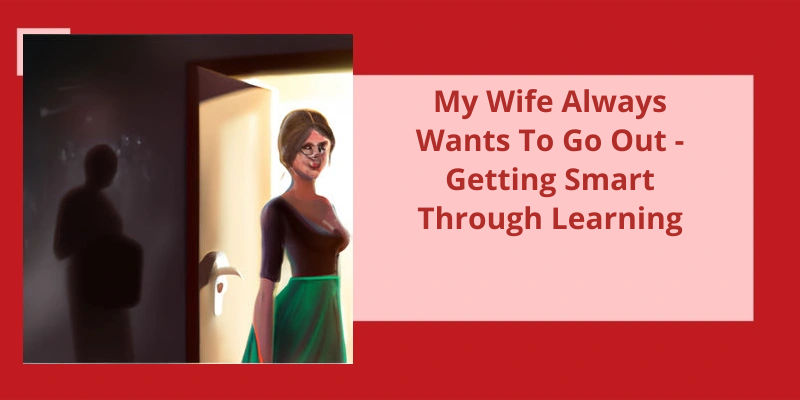Love has been a topic of fascination for centuries, inspiring art, music, literature, and countless conversations. It's a feeling that can be both exhilarating and unnerving, causing even the strongest of us to lose our sense of reason. One of the most common symptoms of being in love is the inability to eat or sleep, leading to a state of lovesickness. While this state is often romanticized by popular culture, the reality is that it can be quite disruptive to one's daily life. Recent research has shed light on the scientific basis for these symptoms, with the stress hormone cortisol playing a key role. Understanding the biology behind lovesickness can help us better navigate this exciting, yet challenging, aspect of human emotion.
Does Falling in Love Make You Exhausted?
Falling in love can be one of the most incredible experiences in life, but it can also take a toll on your physical and emotional well-being. It’s said that love is like a drug and falling in love leads to an increase in hormones like dopamine, oxytocin, and adrenaline. While this may make you feel energized and excited at first, it can quickly turn into exhaustion as your body tries to adjust to the constant changes in hormone levels. The result can be fatigue, stress, and even disrupted sleep patterns.
It isn’t just the hormonal changes that can cause exhaustion when falling in love. The emotional intensity of the experience can also be draining. You may be constantly thinking about the person you’re falling in love with, analyzing every interaction and anticipating the next one. This can lead to feelings of anxiety and overthinking, which can be exhausting. Additionally, the fear of rejection can be overwhelming and cause emotional exhaustion.
You may find yourself neglecting other areas of your life like work, family, and friendships as you prioritize your relationship. This imbalance can lead to burnout and leave you feeling drained. Additionally, if you’re in a long-distance relationship, the effort required to maintain the relationship can be exhausting, both physically and emotionally.
Hormone changes, emotional intensity, time and energy commitments, and vulnerability can all contribute to feelings of fatigue and burnout. However, it’s important to remember that falling in love can also bring joy, happiness, and fulfillment. It’s all about finding balance and taking care of yourself while still letting yourself experience the magic of falling in love.
However, the effects of deep love extend beyond just these neurochemical responses. It can impact our behavior, decision-making, and overall well-being in ways we may not even realize. Let’s take a closer look at some of the transformative effects that being deeply in love can have on us.
What Happens When You Are Deeply in Love With Someone?
Being deeply in love with someone is an experience that can consume a persons entire being. The feeling of intense affection and affection for another person is indescribable, and it can lead to a great deal of happiness and fulfillment. When a person is in love, they feel a rush of emotions and physical sensations that can be both exhilarating and overwhelming. They may experience a heightened sense of connectivity to the world around them, leading to increased feelings of empathy and understanding.
One of the most noticeable effects of being deeply in love is the release of neurochemicals like dopamine and oxytocin. These hormones flood the brain, producing physical and psychological responses that can be incredibly pleasurable. The surge of dopamine is responsible for the “high” that people often describe when they fall in love. It leads to feelings of excitement and euphoria, and it can alter a persons perception of reality.
When someone is in love, they may become obsessed with their partner, thinking about them constantly and longing to spend all their time together. This desire for connection can become all-consuming, leading to a dependence on their significant others presence and attention.
At the same time, being deeply in love can increase a persons desire for physical intimacy. The release of oxytocin, also known as the “cuddle hormone,” is responsible for creating feelings of trust and bonding between two people. It can also lead to increased sexual desire and a stronger urge to connect with ones partner on a physical level. This deep desire for intimacy can be incredibly fulfilling, but it can also create intense feelings of vulnerability and insecurity.
While the rush of dopamine and oxytocin can produce intense feelings of joy and connection, it can also lead to an addictive dependence and a heightened sense of vulnerability. When love is mutual and reciprocated, it can be one of the most fulfilling and beautiful experiences that life has to offer.
The Difference Between Being in Love and Infatuation
Being in love is a deeper, long-term emotional connection that involves mutual respect, trust, and commitment. Infatuation is a short-lived, intense attraction that’s often based on physical appearance or immediate chemistry.
Love is a complex emotion that can develop in various ways between two individuals. While physical intimacy can certainly enhance feelings of closeness, it isn’t always necessary to ignite the flame of love between two people. In fact, many people experience deep love and emotional connections with their partners long before any sexual encounter takes place.
Can You Be in Love With Someone You’ve Not Slept With?
It’s possible to be in love with someone you havent slept with, as love isn’t solely dependent on physical intimacy. Emotional and mental connections are just as important, if not more so, in cultivating love between two people. Shared experiences, common interests, and compatible personalities can all contribute to the formation of a deep emotional bond, regardless of sexual activity.
It’s also worth noting that love isn’t always straightforward or predictable. Sometimes, people may develop strong romantic feelings for someone they havent slept with simply because of the chemistry and connection they share. On the other hand, some couples may sleep together before developing romantic feelings, only to realize later that they aren’t compatible in other ways.
Furthermore, sexual attraction and love aren’t always mutually inclusive. While physical attraction is certainly important in many romantic relationships, it doesn’t necessarily equate to love. Some people can form meaningful, loving relationships with individuals they may not find physically attractive, while others may feel deeply in love with someone they’ve never personally met.
For some, physical intimacy is a crucial component of their love language, while for others, emotional intimacy and connection are what matter most. Whats important is that both partners are on the same page and feel comfortable with the level of intimacy (physical or otherwise) in their relationship.
Overall, love is a complex and multifaceted emotion that can’t be reduced solely to sexual attraction or physical intimacy. While sexual chemistry and compatibility can certainly enhance a romantic relationship, they aren’t the only factors that contribute to deep, meaningful love between two people. Ultimately, the key is to foster open and honest communication, respect, and trust with your partner, regardless of whether or not you’ve slept together.
Source: Can someone fall in love with someone without having sex …
While being in love can bring immense joy and excitement, it also has it’s downsides, and one of them is difficulty sleeping. As per research conducted, the rush of positive emotions can impact your sleep patterns, causing you to stay alert and energized during odd hours, leading to restless sleep. In the next section, let’s explore the science behind love and sleep and how to overcome this troublesome issue.
Why Can’t I Sleep When I’m in Love?
It’s not uncommon to feel like youre on cloud nine when youre in love, but it’s also not unusual to feel like youre losing sleep over it. Many people experience difficulty sleeping when they first fall in love, and although it’s not entirely clear why this happens, there are some possible explanations.
One possibility is that the excitement and anticipation of a new love interest might keep your mind racing at night, making it difficult to quiet your thoughts and relax into sleep.
In addition, the intense emotions that come with being in love can cause us to feel hyper-alert and on edge, which can further disrupt our ability to relax and fall asleep. Whether it’s butterflies in your stomach, racing thoughts or a general sense of excitement and anticipation, these feelings can make it difficult to switch off at bedtime.
While it’s normal to feel a little restless or excited when youre in love, it’s also important to recognize when this starts to negatively impact your sleep quality. If you find yourself tossing and turning or struggling to fall and stay asleep on a regular basis, it might be time to take a closer look at your sleep habits and make some adjustments.
By taking care of your sleep hygiene, practicing relaxation techniques, and finding healthy ways to manage your emotions, it’s possible to enjoy the bliss of new love without sacrificing a good nights rest.
Conclusion
In conclusion, the power of love is palpable, and it can impact us both emotionally and physically. When we fall deeply in love, it can be overwhelming, and it's important to recognize the symptoms that manifest in our bodies as a result. It's not uncommon to lose our appetite or feel uneasy, and while it may seem alarming at first, it's actually a good sign that we’re truly smitten with someone. Understanding the science behind these physical sensations can help us navigate this exciting but often challenging time in our lives. So next time you find yourself unable to eat or sleep due to newfound love, embrace it as a natural part of the process – your body is simply telling you how much that other person means to you.






